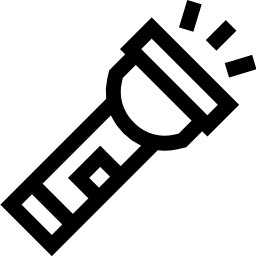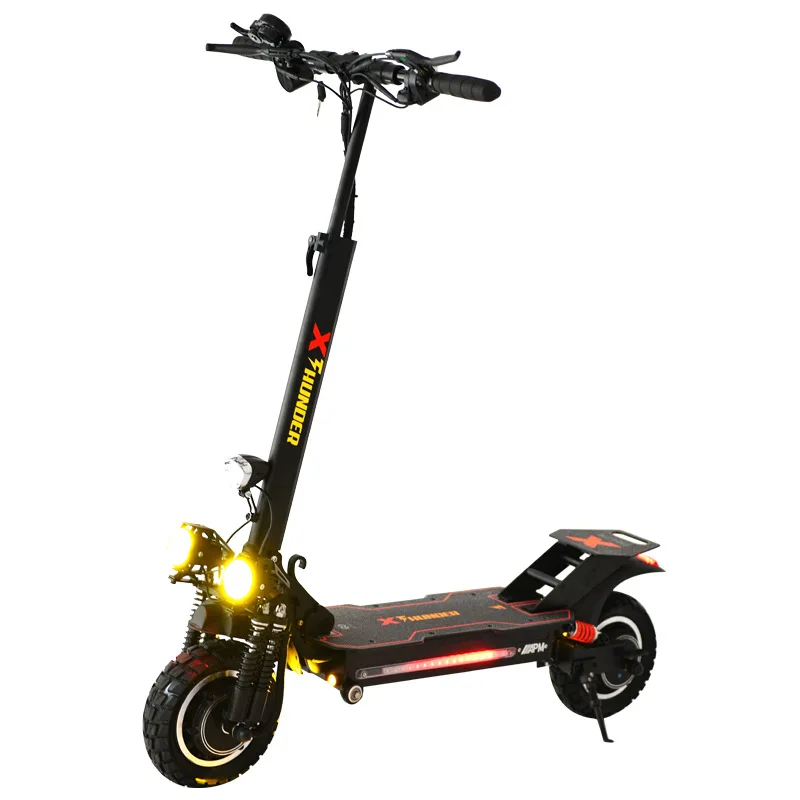Search engine optimization (SEO): What keywords are people using to find this information?
Ever wondered how people find your awesome camping blog or online store amidst the vast digital wilderness? It’s all about understanding what they’re typing into search engines – their “keywords.” Think of it as learning the secret language of Google, Bing, and the whole gang. This isn’t just about ranking higher; it’s about connecting with your audience by answering the questions they’re already asking. So, grab your virtual compass; we’re diving into the world of SEO keyword research, tailored specifically for camping enthusiasts and businesses.
Why Bother with Keyword Research Anyway?
Because yelling into the void rarely gets you anywhere. Let me explain. Imagine setting up a tent in the middle of nowhere with no signposts. You’re relying on sheer luck that someone stumbles upon it. Keyword research is like putting up those signposts, guiding people directly to your campsite (or, in this case, your website). It helps you:
- Understand Your Audience: What are they really looking for?
- Attract the Right Visitors: People genuinely interested in camping stuff.
- Improve Your Ranking: Get noticed by search engines.
- Create Relevant Content: Write articles, guides, and product descriptions that actually resonate.
Honestly, if you’re not doing keyword research, you’re leaving visibility on the table. Period.
Okay, So What Keywords Are Campers Actually Using?
This is the million-dollar question, isn’t it? The short answer is: it depends! But let’s break it down into categories.
Gear-Related Keywords: “Best Camping Gadgets,” and Other Shiny Things
Campers love their gear! And they search for it… a lot. Think about the different kinds of gear and what someone might type in when they need it.
- Specific Items: “Best camping tent for families,” “lightweight backpacking stove,” “water filter for hiking.”
- Brand Names: “Coleman camping gear,” “rei tent review,” “osprey backpack sale.”
- Comparative Terms: “Tent vs. hammock camping,” “sleeping bag down vs. synthetic,” “headlamp lumens explained.”
You know what? People also search for very specific use cases. For example, someone might search for “best tent for festivals” which is different from “best tent for winter camping.” Think about those nuances!
Location-Based Keywords: “Camping Near Me,” and the Quest for the Perfect Campsite
Location, location, location! This is huge for attracting local traffic. Campers want to know where they can pitch their tents.
- General Searches: “Camping near [city],” “best campgrounds in [state],” “rv parks [region].”
- Park-Specific: “Yosemite camping reservations,” “Acadia National Park campgrounds,” “Grand Canyon backcountry camping.”
- Activity-Specific (at a Location): “Hiking trails near [lake],” “fishing spots in [national forest],” “rock climbing in [state park].”
Don’t forget about seasonal variations, either. “Fall foliage camping in Vermont” would be a killer keyword in October!
Informational Keywords: “How to Camp,” and the Thirst for Knowledge
Not everyone searching for camping is ready to buy something *right now.* Many are planning, learning, and prepping. This is where you can become a trusted resource.
- Beginner Guides: “Camping for beginners,” “how to set up a tent,” “what to pack for camping.”
- Skills & Techniques: “How to start a campfire,” “how to navigate with a map and compass,” “how to purify water in the wilderness.”
- Safety Tips: “Bear safety camping,” “first aid for campers,” “how to prevent hypothermia.”
- Recipes: “Easy camping meals,” “campfire desserts,” “backpacking food ideas.”
Honestly, answering these kinds of questions establishes you as an authority. It’s a long game, but it pays off.
Problem/Solution Keywords: “Why Is My Tent Leaking?” and Other Camping Conundrums
Campers run into problems, and they turn to the internet for answers. Addressing these issues directly is a great way to capture targeted traffic.
- Troubleshooting: “Why is my tent leaking?” “How to fix a broken tent pole,” “how to keep bugs away when camping.”
- Gear Problems: “Sleeping bag not warm enough,” “camping stove won’t light,” “headlamp battery draining fast.”
- Environmental Issues: “How to camp in the rain,” “how to stay warm camping in winter,” “how to deal with mosquitoes while camping.”
Think like a camper facing a real-world problem. What would *you* type into Google?
Tools of the Trade: Keyword Research Gadgets and Gizmos
Alright, so you have a sense of the *types* of keywords. How do you actually *find* them? Thankfully, there’s a bunch of tools available.
Google Keyword Planner: The Free (But Limited) Option
This is Google’s own tool, and it’s free to use if you have a Google Ads account. It’s decent for getting a general sense of search volume and competition, but it’s not the *most* precise.
- Pros: Free, integrates with Google Ads, good for basic research.
- Cons: Data is often broad and rounded, requires an Ads account (even if you’re not running ads).
It’s a good starting point, especially if you’re on a tight budget.
Semrush: The All-in-One Powerhouse
Semrush (external link) is a paid tool, but it’s incredibly powerful. It lets you analyze competitor keywords, track your own rankings, and get really deep insights into search trends.
- Pros: Comprehensive data, competitor analysis, keyword tracking, site audit features.
- Cons: Expensive, can be overwhelming for beginners.
If you’re serious about SEO, Semrush is well worth the investment.
Ahrefs: The Backlink Buddy (and Keyword Hunter)
Ahrefs (external link) is primarily known for its backlink analysis capabilities, but it also has a robust keyword research toolset. It’s great for finding keyword opportunities and understanding the competitive landscape.
- Pros: Excellent backlink data, keyword explorer, content gap analysis.
- Cons: Also expensive, focuses more on backlink analysis.
Backlinks are a critical component of SEO, so Ahrefs is a solid choice.
Longtail Keyword Tools: Digging for Those Hidden Gems
These tools focus on finding those longer, more specific keyword phrases that often have less competition. Think “best lightweight tent for backpacking in the Sierra Nevada” instead of just “camping tent.”
- Examples: Keywords Everywhere (browser extension), AnswerThePublic.
Longtail keywords can be gold! They attract highly qualified traffic.
Putting It All Together: From Keywords to Content
Finding keywords is only half the battle. You need to actually *use* them effectively in your content. But don’t just stuff keywords in willy-nilly. It has to feel natural.
Crafting Content That Resonates (and Ranks)
Here’s the thing: Google is smart. It can tell if you’re just writing for search engines or if you’re actually providing value to your readers. Focus on creating high-quality, informative, and engaging content, and incorporate your keywords naturally.
- Use Keywords in Your Titles & Headings: But make them compelling!
- Incorporate Keywords Throughout Your Body Text: But don’t overdo it. Aim for a natural flow.
- Optimize Your Images: Use alt text to describe your images using relevant keywords.
- Write Comprehensive Guides: Cover topics thoroughly and answer all your readers’ questions.
Think about user intent. What are people *really* trying to accomplish when they search for a particular keyword?
Don’t Forget About On-Page SEO Basics
Keyword research is important, but don’t neglect the other fundamental aspects of SEO.
- Mobile-Friendliness: Make sure your website is responsive and looks good on all devices.
- Page Speed: Optimize your website for speed. Slow websites are a big turn-off (to both users and Google).
- Internal Linking: Link to other relevant pages on your website. This helps Google crawl and understand your site.
- Meta Descriptions: Write compelling meta descriptions that entice people to click on your search results.
Basically, make sure your website is in good shape from a technical perspective.
The Long Game: SEO is a Marathon, Not a Sprint
SEO takes time. You’re not going to see results overnight. Be patient, consistent, and keep learning. The search landscape is always evolving, so you need to stay up-to-date on the latest trends and best practices.
- Track Your Rankings: Monitor your keyword rankings over time to see what’s working and what’s not.
- Analyze Your Traffic: Use Google Analytics to track your website traffic and understand where your visitors are coming from.
- Adapt and Adjust: SEO is an ongoing process. Be prepared to adapt your strategy as needed.
Honestly, think of it as tending a campfire. You need to keep adding fuel (content) to keep it burning brightly.
But Wait, There’s More! A Few Extra Nuggets of Wisdom
Here are a couple more things to keep in mind as you embark on your keyword research journey:
Consider Voice Search: “Okay Google, Find Me a Campsite…”
With the rise of voice assistants like Google Assistant and Siri, people are increasingly using voice search. This means you need to optimize your content for conversational queries.
- Think in Questions: Focus on answering common questions that people might ask.
- Use Natural Language: Write in a way that sounds natural and conversational.
- Target Longtail Keywords: Voice searches tend to be longer and more specific.
In essence, you’re optimizing for real human speech patterns.
Local SEO is Crucial for Camping Businesses
If you own a campground, outdoor store, or guide service, local SEO is essential. This involves optimizing your website and online listings for local search.
- Create a Google My Business Listing: This is a must!
- Get Local Citations: List your business in relevant online directories.
- Encourage Customer Reviews: Positive reviews can boost your local rankings.
Make it easy for local customers to find you when they’re searching for camping-related services.
Finally Ready to Camp Out on the First Page?
Keyword research is a vital part of any successful SEO strategy, especially in the competitive world of camping. By understanding what your target audience is searching for, you can create content that resonates with them, attracts the right visitors, and improves your search engine rankings. So, get out there, explore those keywords, and start building your online presence. Happy camping (and happy SEO-ing)!
FAQ: Your Burning Questions About Keyword Research Answered
DISCLAIMER
Please note that SEO is an evolving strategy and what works today might not work tomorrow. Always stay updated with the latest search engine guidelines and algorithm changes to ensure your strategies remain effective. The advice provided here is for informational purposes only and should not be considered professional advice. Your results may vary.
Categories
- Navigation & Safety (37)
- Shelter & Sleep (39)
Recent Comments
Archives
Top rated products
-
 Deepower Electric Bike K100 400W Folding Ebike 48V30AH Removable Battery Disc Brake City Commuter Electric Bicycle for Adults
Rated 5.00 out of 5$1,463.83 – $2,014.08Price range: $1,463.83 through $2,014.08
Deepower Electric Bike K100 400W Folding Ebike 48V30AH Removable Battery Disc Brake City Commuter Electric Bicycle for Adults
Rated 5.00 out of 5$1,463.83 – $2,014.08Price range: $1,463.83 through $2,014.08 -
 New Pyramid Tent‘s Inner Tent Outdoor Rodless Ultralight Camping Backpacking Tent Pentagon Summer Mosquito Net Mesh Tent 2 Sizes
Rated 5.00 out of 5$86.32 – $105.96Price range: $86.32 through $105.96
New Pyramid Tent‘s Inner Tent Outdoor Rodless Ultralight Camping Backpacking Tent Pentagon Summer Mosquito Net Mesh Tent 2 Sizes
Rated 5.00 out of 5$86.32 – $105.96Price range: $86.32 through $105.96 -
 Outdoor Tables Folding Camping Table High Strength Aluminum Alloy Table picnic gathering table chair
Rated 5.00 out of 5$63.78 – $133.72Price range: $63.78 through $133.72
Outdoor Tables Folding Camping Table High Strength Aluminum Alloy Table picnic gathering table chair
Rated 5.00 out of 5$63.78 – $133.72Price range: $63.78 through $133.72
Product Gallery
-
 SUP water ski, double-layer paddle board, inflatable high-density EVA surfboard, anti slip pad
$134.94 – $154.77Price range: $134.94 through $154.77
SUP water ski, double-layer paddle board, inflatable high-density EVA surfboard, anti slip pad
$134.94 – $154.77Price range: $134.94 through $154.77
-
 In Stock inflatable sup boards paddleboards standup paddle board waterplay surfing Isup Surf board with standard accessories
$445.84 – $453.22Price range: $445.84 through $453.22
In Stock inflatable sup boards paddleboards standup paddle board waterplay surfing Isup Surf board with standard accessories
$445.84 – $453.22Price range: $445.84 through $453.22
-
 Spatium 2-3 Persons Inflatable Kayak Canoe High Strength DropStitch Floor Inflatable Kayak For Fishing
Rated 5.00 out of 5$2,114.27
Spatium 2-3 Persons Inflatable Kayak Canoe High Strength DropStitch Floor Inflatable Kayak For Fishing
Rated 5.00 out of 5$2,114.27


 Camping Gear
Camping Gear Camping Chair
Camping Chair Camping Table
Camping Table Sleeping Bags
Sleeping Bags Camping Bed
Camping Bed Sleeping Gear
Sleeping Gear Camping Trolley
Camping Trolley Storage Bags
Storage Bags BBQ Portable
BBQ Portable Camping Tents
Camping Tents Gazebos
Gazebos Outdoor Cooler
Outdoor Cooler Cookware
Cookware Power
Power Camping Light
Camping Light Flashlight
Flashlight Portable Solar
Portable Solar Power Banks
Power Banks
 Fish Finders
Fish Finders Fishing Bags
Fishing Bags Fishing Jerseys
Fishing Jerseys Fishing Reels
Fishing Reels Fishing Chairs
Fishing Chairs Fishing Bait Boat
Fishing Bait Boat Fishing Floats
Fishing Floats Hard Baits
Hard Baits
 Hiking Vests
Hiking Vests Outdoor Bags
Outdoor Bags Water Filters
Water Filters Paracord
Paracord Walkie Talkie
Walkie Talkie
 Paddleboards
Paddleboards Boats
Boats Sea Scooter
Sea Scooter Accessories
Accessories
 Electric Bike
Electric Bike Electric Scooter
Electric Scooter

















